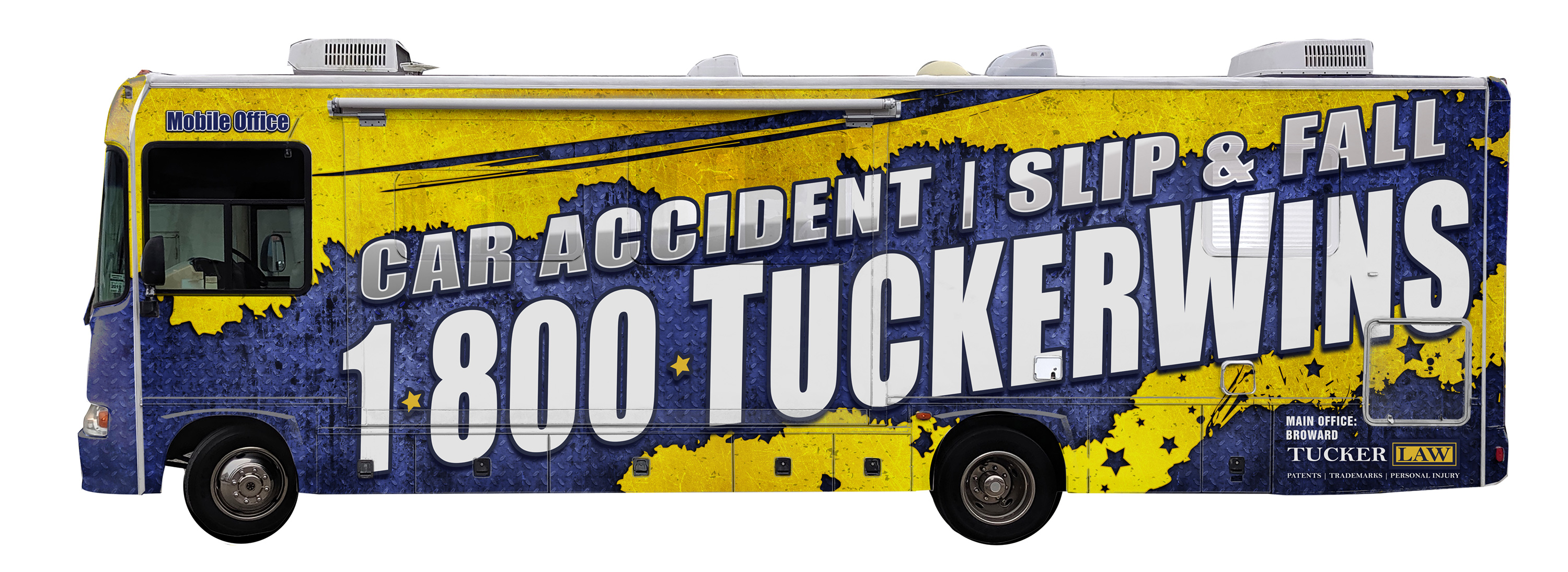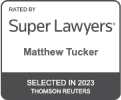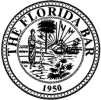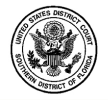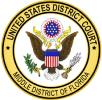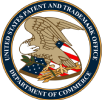Trademark Oppositions and Cancellations
At Tucker Law, safeguarding your brand and intellectual property is our priority. Navigating the complexities of trademark registration challenges, such as oppositions or cancellations, requires experienced legal guidance. Trust an attorney with the firm to defend your trademark rights effectively.

Understanding Trademark Oppositions and Cancellations
A trademark opposition occurs when someone contests the registration of a new trademark, arguing that it could confuse consumers due to its similarity to an existing trademark. Trademark oppositions often involve pending trademark applications, which are applications that have been filed but not yet registered. An attorney with Tucker Law can assist in either filing an opposition if you believe a pending trademark infringes on yours, or defend your trademark if it is the subject of opposition.
Our Approach to Trademark Oppositions
- Comprehensive Review: We meticulously assess the opposition notice and identify the strengths and vulnerabilities of your position.
- Strategic Planning: An attorney with Tucker Law devises a detailed plan to respond, aiming to defend your application or settle the dispute amicably.
- Representative Litigation: We are equipped to advocate on your behalf at the Trademark Trial and Appeal Board (TTAB), ensuring your trademark is protected.
Explaining Trademark Cancellations
A trademark cancellation, also known as a cancellation proceeding, seeks to remove an already registered trademark from the federal register through a legal process. This can occur due to non-use in commerce within the stipulated time frame or the trademark becoming a generic term.
Our Strategy for Trademark Cancellations
- Detailed Analysis: We evaluate the cancellation petition against your existing trademark registration to prepare a fortified defense.
- Vigorous Defense: An attorney with Tucker Law files a compelling response to the cancellation, emphasizing legal justifications to uphold your registration.
- Consistent Support: We support you throughout the TTAB proceedings, focusing on preserving your business identity.
Why Partner with Tucker Law?
- Profound Experience: Specializing in trademark law, we handle intricate issues surrounding trademark oppositions and cancellations with authority.
- Tailored Legal Services: We ensure that each case receives individual attention, meeting both your legal and business objectives.
- Unwavering Dedication to Outcomes: We commit to securing the best possible results for you.
Common Reasons for Trademark Oppositions
Trademark oppositions can arise for various reasons, but some of the most common include:
- Likelihood of Confusion: This occurs when the proposed trademark is so similar to an existing one that it might cause confusion among consumers regarding the source of goods or services.
- Descriptive or Generic Terms: If a trademark is too descriptive of the goods or services it represents, or has become generic, others may oppose its registration to keep the term available for public use.
- Dilution: Owners of famous trademarks may oppose new trademarks if they believe the new mark will dilute the distinctiveness of their famous mark.
A trademark opposition proceeding involves a formal process where the opposing party presents their case to the TTAB.
Steps to Take When Facing a Trademark Opposition
If your trademark application faces opposition, consider the following steps:
- Consult with an Attorney: Engage an attorney experienced in trademark law to understand the specifics of the opposition filed against your trademark. Understanding the specifics of the opposition or cancellation proceeding is crucial for determining the best course of action.
- Evaluate the Opposition: Analyze the claims and evidence presented by the opposing party to determine the validity of their opposition.
- Respond Formally: File a formal response to the opposition. This may include any defenses and counterarguments that support your right to register the trademark.
- Negotiate a Settlement: Sometimes, it may be beneficial to negotiate a settlement or agreement with the opposing party to resolve the dispute without further litigation.
- Prepare for a Trial: If a settlement cannot be reached, prepare for a trial before the TTAB, where both parties will present their arguments and evidence.
Common Reasons for Trademark Cancellations
Trademark cancellations can be filed for reasons including:
- Nonuse: If a trademark has not been used in commerce within a certain period of time, it may be subject to cancellation.
- Misrepresentation or Fraud: If the trademark registration was obtained fraudulently, such as by providing false information about the use of the trademark, it may be canceled.
- Loss of Distinctiveness: If a trademark becomes the generic term for the products or services it was intended to distinguish, it may be canceled.
Trademark registrations can be challenged on various grounds, including nonuse, misrepresentation, or loss of distinctiveness.
Steps to Defend Against Trademark Cancellations
Defending your trademark from cancellation involves:
- Understand the Grounds for Cancellation: Identify the specific reasons why the petition for cancellation was filed. Understanding the grounds for cancellation often involves reviewing the records and filings at the trademark office.
- Gather Evidence: Compile evidence that demonstrates the validity and use of your trademark.
- File a Response: Submit a detailed response to the cancellation petition, addressing each point raised by the petitioner.
- Engage in Discovery: Participate in the discovery process to obtain further evidence from the petitioner that supports your position.
- Defend at the Hearing: Present your case at a TTAB hearing, arguing why your trademark should not be canceled.
Timeline for Trademark Opposition and Cancellation Proceedings
Trademark Opposition Timeline
- Notice of Opposition: Once a trademark application is published in the Official Gazette, any party who believes they may be damaged by the registration has 30 days to file an opposition.
- Cooling-Off Period: After an opposition is filed, both parties may agree to a “cooling-off” period, typically 90 days, to negotiate a settlement before proceeding with the case.
- Discovery Phase: If no settlement is reached, the parties enter the discovery phase, which can last up to 180 days, to gather evidence and depose witnesses.
- Trial Phase: Following discovery, the trial phase consists of a structured exchange of written testimony and evidence over several months.
- Decision: The Trademark Trial and Appeal Board (TTAB) typically issues a decision within six months of the final briefs being filed.
Trademark Cancellation Timeline
Petition to Cancel: Any person who believes they are or will be damaged by a registered trademark can file a petition to cancel any time after the trademark has been registered. The parties involved in a trademark cancellation proceeding include the petitioner who files the cancellation and the trademark owner who must respond. If the mark has been registered under the Principal Register for more than five years, certain grounds for cancellation may no longer be available.
Answer Period: The trademark owner must file an answer within 40 days after the petition is instituted.
Discovery and Trial: Similar to opposition proceedings, the cancellation process includes a discovery phase and a trial phase, with a timeline that can extend over several months or even years.
Final Decision: As in opposition cases, the TTAB makes the final decision based on the evidence and arguments presented.
Legal Strategies in Trademark Oppositions and Cancellations
Pre-Trial Settlements: Engaging in negotiations before reaching trial is common. The United States Patent and Trademark Office (USPTO) oversees the Trademark Trial and Appeal Board (TTAB), which handles opposition and cancellation proceedings. Settlements can involve licensing agreements, coexistence agreements, or modifications to the trademark applications.
Motions and Briefs: Throughout the proceedings, both parties can file motions to compel, dismiss, or summarize judgments based on procedural and substantive grounds.
Appeals: Decisions by the TTAB can be appealed to the U.S. Court of Appeals for the Federal Circuit or to a federal district court, where new evidence may be introduced.
Role of an Attorney in TTAB Proceedings
- Navigating Procedural Rules: TTAB proceedings have specific procedural rules, and an attorney with experience in trademark law can ensure that all filings and actions comply with these rules to avoid dismissal or default judgments.
- Developing a Strong Record: An attorney can help in building a strong evidentiary record during discovery and trial, which is crucial if the case is appealed.
- Expert Testimony: In some cases, expert witnesses may be necessary to provide testimony on issues such as consumer confusion or the distinctiveness of a trademark. An attorney can identify the need for such testimony and manage the process of securing expert analysis.
Table of Contents
- Trademark Oppositions and Cancellations
- Understanding Trademark Oppositions and Cancellations
- Our Approach to Trademark Oppositions
- Explaining Trademark Cancellations
- Our Strategy for Trademark Cancellations
- Why Partner with Tucker Law?
- Common Reasons for Trademark Oppositions
- Steps to Take When Facing a Trademark Opposition
- Common Reasons for Trademark Cancellations
- Steps to Defend Against Trademark Cancellations
- Timeline for Trademark Opposition and Cancellation Proceedings
- Legal Strategies in Trademark Oppositions and Cancellations
- Role of an Attorney in TTAB Proceedings
- Let’s Connect
FREE Case Review
Other Practice Areas
Mobile Office
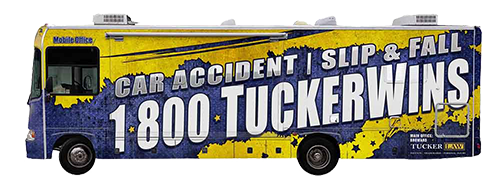
Whether you are injured or have an idea for an invention, Tucker Law has the ability to meet clients anywhere in Florida. Ask our staff about our mobile office. That is why we can meet clients with our 32 foot mobile office anywhere. From driving to the scene of a crash, to meeting with accident victims at their house or other safe locations, our mobile office can help you regardless of your location or your ability to drive.
